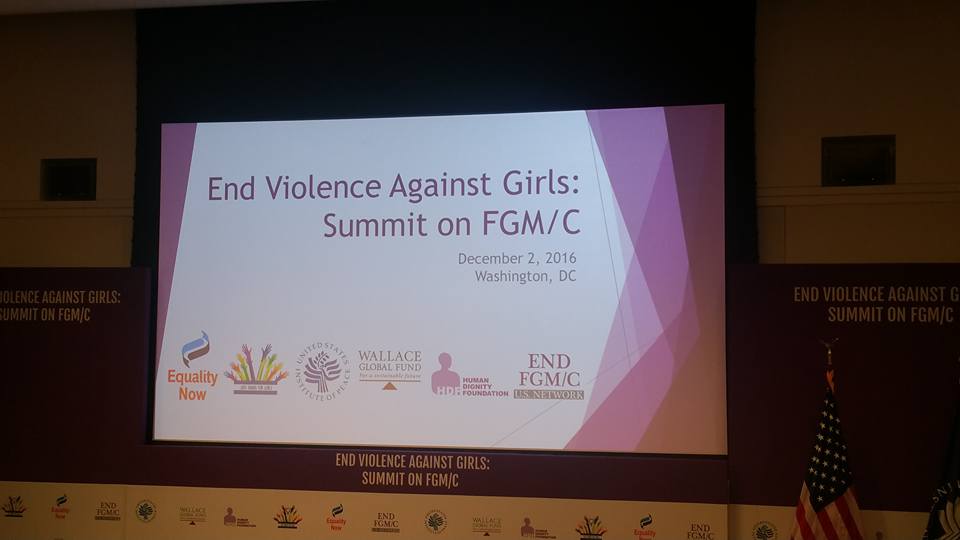Sustainable Development Goals: How the UNs Benchmarks Align with Sahiyo’s Mission to End Female Gential Cutting
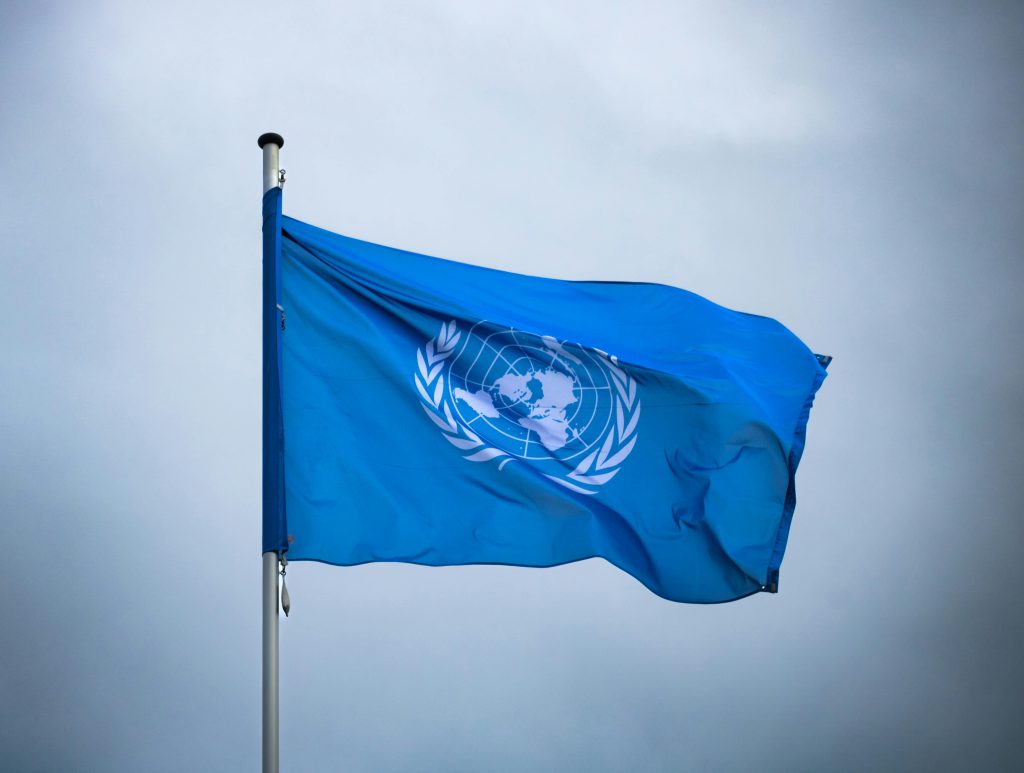
By Elaina Baliner Sahiyo’s Fundraising and Auction Intern Elaina Baliner is a recent graduate of The Ohio State University where she earned a Bachelor of Science in Health and Rehabilitation Sciences with a minor in Biology. A passionate global health equity advocate, Elaina actively seeks to maximize positive impact and close health equity gaps. Recently Elaina sat down with Sahiyo’s Editorial Assistant, Megan Seaver, to discuss the connection between Sahiyo’s mission to end FGC and the UN’s Sustainable Development Goals. What are the UN Sustainable Development Goals? The United Nations Sustainable Development Goals, (SDGs), are the 17 benchmarks set by the UN in order to achieve peace and prosperity for both people and the planet. These goals center on a One Health approach, meaning that the health of people, planet, and animals all intersect with each other. They are designed to break silos within the UN, addressing a longstanding issue of treating personal health, animal health, and planetary health as separate concerns rather than recognizing them as inherently interconnected. The SDGs are critical in guiding the global effort to push for a better world, addressing a range of interconnected challenges such as poverty, inequality, and environmental degradation. For Sahiyo, the goals that are most closely aligned to our mission of ending FGC are: SGD 3 Good Health and Well-being for All, and SDG 5 Gender Equality — specifically target 5.3 — which calls for the elimination of all harmful practices, including FGC. How do the goals of Good Health and Wellbeing for All, and Gender Equality, relate to Sahiyo’s mission? Sahiyo aligns with SDG 3, Good Health and Wellbeing for all, by advocating for the health rights of women and girls. FGC can lead to severe health complications such as chronic pain, infections, increased risk in child rearing complications, psychological trauma, and so much more. By raising awareness of FGC, Sahiyo also shines a light on the physical, mental, and social issues that the practice causes. Sahiyo also works closely with healthcare professionals to ensure that when survivors do seek care for complications related to FGC, the care they receive is culturally sensitive and wholly beneficial for the survivor. SDG 5, Gender Equality, is at the heart of Sahiyo’s work. The third target of SDG 5, also referred to as SDG 5.3, calls for the elimination of FGC. By providing resources and skills to communities affected by FGC, Sahiyo uplifts survivors’ voices, helping them to share their stories with the world and providing a space for narrative autonomy, which is crucial in promoting gender equality. Why do you think it’s important that Sahiyo ensure that its projects and programs connect to these goals outlined by the UN? Connecting our work to the UN goals situates FGC within a broader global context, highlighting that it is not merely a local or regional issue, but a critical matter of international concern. Additionally, aligning with the SDGs ensures that our projects are contributing to measurable, impactful change. The SDGs provide a framework for tracking progress and accountability, allowing us to demonstrate the effectiveness of our interventions in a globally recognized manner. Finally, by aligning with these goals, we can better advocate for the necessary support and resources to expand our impact, demonstrating that our efforts to end FGC and protect women and girls are part of the collective global movement toward a more equitable and healthier future for all. Do you think that the UN is doing enough to address FGC? The UN has made significant strides in addressing FGC through initiatives like the International Day of Zero Tolerance for FGM and the joint UNFPA-UNICEF program. While these efforts have been impactful, there is a pressing need for the UN to expand its scope and reach. The movement to end FGC must be a global one, requiring the UN to broaden its programs to include populations in Western countries and additional nations beyond the current focus on African and Middle Eastern countries in order to meet the 2030 goal of ending the practice. So, while the UN’s efforts have reached millions, leveraging their resources to expand this movement can drive even greater impact, ensuring no woman or girl is left behind in the fight against FGC. What are some programs and initiatives that Sahiyo has done that you think connect to these goals? One of the programs that has touched me the most is Sahiyo’s Voices to End FGM/C initiative. This initiative empowers survivors, particularly from underrepresented communities, to share their stories through digital narratives. Their bravery in speaking out, often against cultural expectations, helps break the silence around FGC, fostering empathy and creating the foundation for real social change. Moreover, Sahiyo’s focus on movement building is deeply aligned with both the SDGs and the UN’s joint program’s efforts to create a global movement against FGC. Through initiatives like our Activists Retreat, survivor-led policy coalitions, and technical training seminars, Sahiyo has found that as more people speak out and stimulate dialogue, we reach a threshold where change becomes more likely. By building this coalition of voices—survivors, advocates, and community members—we generate powerful momentum toward ending the practice. What are some ways that you would address these goals and Sahiyo’s mission? A significant way that Sahiyo could further address SDG 3 (Good Health and Well-being) is by expanding our healthcare provider training program into a comprehensive, adaptable curriculum suitable for both medical schools and continuing education for practicing healthcare professionals. On the research front, Sahiyo has conducted meaningful studies on prevalence, cultural intersections, and survivor narratives, addressing critical data gaps identified by the UN as obstacles to ending the practice. To build on this foundation, pursuing economic impact research would be a powerful next step, providing critical data to inform policy and advocacy. These initiatives are within Sahiyo’s reach and reflect our commitment to addressing SDG 3 and SDG 5. However, realizing them requires the support and resources that come from our community and donors. It is through collective action that we can continue to
Aarefa Johari makes statement at Human Rights Council

On June 20th, Sahiyo co-founder Aarefa Johari submitted an online oral statement on Female Genital Cutting (FGC) in Asia at the United Nations’ 50th Human Rights Council. The statement was made on behalf of the Asian-Pacific Resource and Research Centre for Women (ARROW) and the Asia Network to End Female Genital Mutilation/Cutting. The video statement was aired at an HRC “Interactive Dialogue session with the Special Rapporteur on the right of everyone to the enjoyment of the highest attainable standard of physical and mental health.” It was one of over 75 video statements about health rights made by activists and experts from around the world. Johari’s statement highlighted the widespread prevalence of FGC in several Asian countries, and the lack of resources and attention towards addressing the issue in these nations. Johari called on UN member states to undertake thorough research on FGC in Asia, increase funding towards community-based organisations working to end the practice, and to enact legislation to prohibit all forms of FGC. You can view Johari’s video statement here.
Sahiyo takes part in a variety of virtual NGO CSW 65 Forum events in March
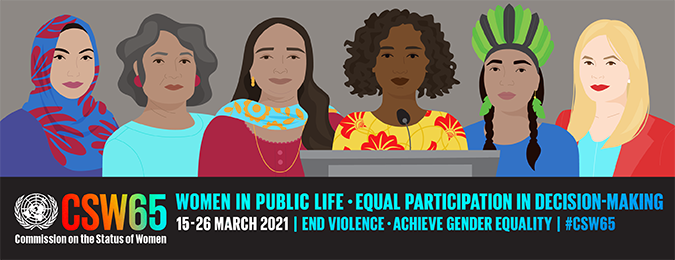
Due to the COVID-19 pandemic, the 65th Commission on the Status of Women (CSW) meetings took place virtually March 15-26, with thousands of individuals from civil society from across the globe taking part to collaborate and connect with each other on the pressing issues of our times and the progress we have made toward achieving gender equity and equality. Every year the NGO CSW/NY organizes the civil society side of the United Nations Commission on the Status of Women. The NGO CSW Forum runs parallel to the official session taking place at the U.N. Headquarters. This provides civil society the opportunity to engage in the processes and CSW sessions without ECOSOC-accreditation or a U.N. grounds pass. This year, Sahiyo co-hosted, organized, and was a speaker at the following parallel sessions: March 16th Using Storytelling to Shift Social Norms and Prevent FGM/C Sponsored by Sahiyo & StoryCenter Sahiyo and StoryCenter introduced their collaborative Voices to End FGM/C project, which centers on storytelling by survivors and those affected by female genital mutilation/cutting (FGM/C) as a tool to challenge social norms that perpetuate the practice. Using a combination of didactic presentation, audience participation, and short videos, the presentation explored the theoretical underpinnings of the Voices Project, highlighted the success of our digital storytelling workshops, and shared how the project has supported women in their healing journey and furthered efforts to prevent future generations of girls from enduring this form of gender-based violence. Read a recap of the event here. View the event here. [youtube url=”https://youtu.be/eqKWrODSODg”] March 19th The Power of Digital Media and Achieving Gender Equality Sponsored by Muslim American Leadership Alliance (MALA) Digital media has been a powerful resource toward achieving gender equality. It has been integral in raising awareness for issues pertaining to gender-based violence; equity and equality in social communities; and economic participation for women. It also has been a resource to provide financial literacy and economic opportunities for women on a global scale. This panel convened nonprofits, corporations, digital media experts, and activists to bring forth a comprehensive dialogue on how current and future digital/social media tools can further accelerate the realization of gender equality and the empowerment of all women and girls. CSW 65 theme is an assessment of current challenges that affect the implementation of the Platform for Action and the achievement of gender equality, and the empowerment of women, and its contribution towards the full realization of the 2030 Agenda for Sustainable Development. View the event here. Panelists: Mariya Taher | Co-founder, Sahiyo Sali Mahgoub | Deputy Director at Obama Foundation Holly Weckler | Developer Innovation Lead at Synctera March 23rd Amplifying The Voices On Ending Female Genital Mutilation Sponsored by Soroptimist International Co-sponsored by North American/European Caucus This event addressed violence against girls, focusing on female genital mutilation/cutting in North America, Europe and beyond which hinders women from achieving gender equality and empowerment. Various aspects of this issue were addressed by experts and survivors who work to achieve the Sustainable Development Goals (SDGs) and end all forms of violence against women. Furthermore, it addressed the lifetime trauma FGM/C has on victims’ wellbeing and the effect of COVID-19 on the lived experiences of the girls and women in relation to FGM/C. View the event here. March 24th Partnerships to Accelerate Global Action to End FGM/C by 2030 Sponsored by Global Platform for Action to End FGM/C When the Beijing Declaration and Platform for Action was adopted, estimates suggested that 133 million girls and women had experienced female genital mutilation/cutting in Africa alone. With improved data, estimates now suggest 200 million girls and women globally have been affected. If action to end FGM/C is not accelerated, an estimated 68 million girls will be cut by 2030. The COVID-19 has further impacted progress towards abandonment of FGM/C. Hearing first-hand from grassroots activists and survivors, this session explored models of success from specific communities across different continents that have led to sustained reductions in FGM/C prevalence and have the potential to accelerate progress through broader adoption. The Global Platform for Action to End FGM/C, an international group of organizations advocating to stop FGM/C, of which Sahiyo is a founding member. Read the reflection blog post here. View the event here.
UNFPA launches 2020 State of the World Population Report

By Hunter Kessous On July 30th, the United Nations Fund for Populations Activities (UNFPA) hosted a virtual event to launch the 2020 State of the World Population Report. UNFPA is the sexual and reproductive health agency of the United Nations. This year’s report titled, Against My Will, focused on three of nineteen harmful practices girls and women face: child marriage, female genital cutting (FGC), and son preference. Son preference is a symptom of gender inequality that results in harmful practices such as gender-biased sex selection and neglect of female children. Speakers included Chrissy Houlahan, U.S. Representative; Sarah Craven, UNFPA; Sarah Hillware, Women in Global Health; Dr. Kakenya Ntaiya, Kakenya’s Dream; Jeanne Smoot, Tahirih Justice Center; and moderator Seema Jalan; UN. First to speak was U.S. Representative Houlahan who introduced the Support UNFPA Funding Act, a bill of which she is the lead author. Currently, the U.S. is withholding funding from the UNFPA for the fourth consecutive year. Houlahan calls on organizations to endorse her bill and on fellow Congress members to co-sponsor the bill in order to provide funding to the UNFPA. Following Houlahan’s important message, Sarah Craven introduced the Against My Will report. Craven summarized the report as demanding respect for the autonomy of women and girls; demanding protection of women and girls by enacting laws and changing societal norms; and stating governments must fulfill their obligations under human rights treaties. Panelists Hillware, Ntaiya, and Smoot spoke on the importance of this report in the era of COVID-19. The attention of the media and policymakers is elsewhere as we grapple with the pandemic and the growing issues of police brutality. However, the virus has also increased the marginalization and vulnerability of girls and women. Reports such as this refocus attention on gender-based violence and empower us with tools to continue fighting these harmful practices. In response to the growing conversation about institutional racism, the panelists remarked on their organizations’ action steps. Smoot highlighted the importance of fighting all forms of oppression in order to abolish gender-based violence. Hillware calls on activists to work both internally and externally, meaning organizations should work toward intersectionality within their own staff. Ntaiya was asked how she walks the line of abandoning FGC in Kenya while still showing respect for the parents of the girls with whom she works. Ntaiya made an important point that FGC elimination requires all people within the community to be on board. Teaching the harms of FGC to girls in school won’t be effective if they are going home to a community that preaches an opposite viewpoint. For this reason, she works to educate parents, chiefs, health system workers, elders, and more. Ntaiya notes the need for a more holistic system for ending FGC. She provided the example that the chief may want to enforce anti-FGC laws, but lack the resources to do so such as a car to rescue girls, a hospital to take them to, etc. In addition to education for the community, we must implement other systems to make ending FGC possible.
How COVID-19 may increase gender-based violence, including FGM/C
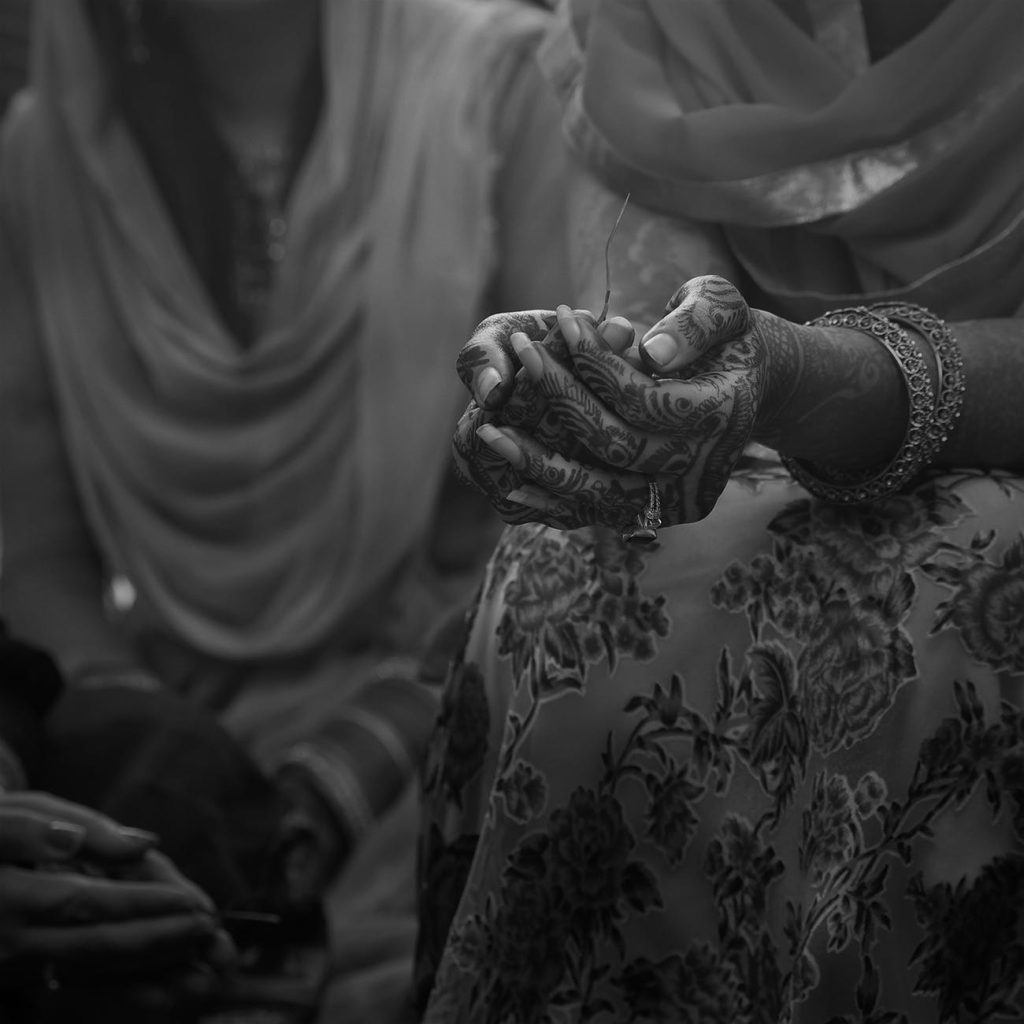
The UNFPA and UNICEF Joint Program on the Elimination of Female Genital Mutilation/Cutting (FGM/C) released a technical note about how the COVID-19 pandemic may affect women and girls adversely in regard to violence and inequalities. The COVID-19 pandemic has the potential to allow an additional two million cases of FGM/C due to restricted movement and confinement of people globally, disrupting the Sustainable Development Goal 5.3: Eliminating FGM/C by 2030. The closing of schools, restricted mobility and the inevitability of health care workers prioritizing COVID-19 patients heightens the need for supporting community-based women and youth groups identifying at-risk girls vulnerable to violence, including FGM/C. The brief is meant as a guide for UNFPA and UNICEF Joint Program staff and partners, other United Nations agencies, governments, civil society, and non-governmental organizations, on how to assess the impact COVID-19 may have on FGM/C programs. The call to action includes integrating FGM/C in COVID-19 preparedness and response plans; access to prevention, protection, and care services and community-based protection; alternative approaches to community-based interventions promoting the abandonment of FGM/C; opportunities presented by the pandemic; and adaptive monitoring and evaluation.
Looking Back: Sahiyo at CSW/MALA’s March 2019 Event
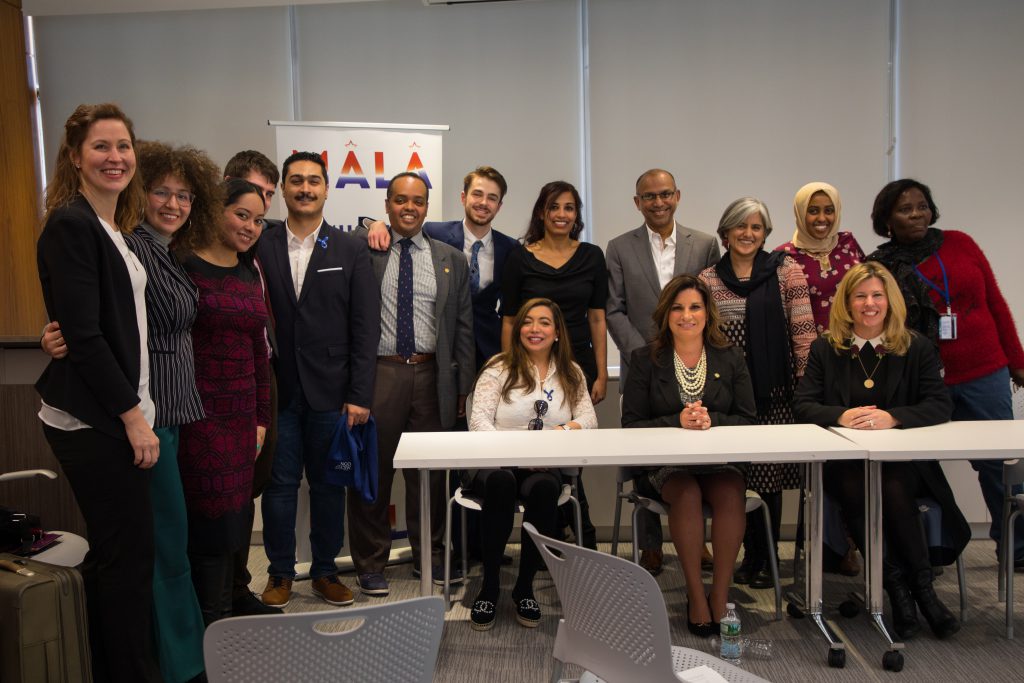
On March 18th 2019, the Muslim American Leadership Alliance (MALA) hosted a parallel event on “Addressing FGM in the USA: Safeguarding Survivors and Protecting Victims“ at the UN Commission on the Status of Women 63rd Session in New York. The panel took place at the UN Church Center. The panel convened survivors, policy makers, non-profit leaders, and community organizers to facilitate the dialogue on what necessary steps are needed to ensure ‘zero tolerance’ towards FGM for both survivors and at-risk women and girls. Speakers included: Mariya Taher, Sahiyo Cofounder Mary Franson, Minnesota House of Representatives Andrea G. Bottner, J.D., Senior Advisor- Independent Women’s Forum Asad Zaman, M.D Zehra Patwa, WeSpeakOut Co-Founder and Sahiyo Vice-Chair of the U.S. Advisory Board This panel analyzed the practice of FGC in the United States through a medical, psychological, and legislative lens. The panelists collectively suggested a variety of approaches to bringing communities together to gain knowledge and organize. The event was incredibly popular, with the room at full capacity and more guests listening from the hall. These types of events are essential towards our progress in creating a world without FGC.
Sahiyo’s petition to the United Nations needs your help

In December 2016, Sahiyo started a petition with Change.org to encourage the United Nations to invest in research on Female Genital Mutilation/Cutting in Asian countries. The petition proposes to end FGM/C worldwide by 2030, and Sahiyo needs the support of 7,500 petition signers to accomplish our goal. The United Nations reports that at least 200 million women have undergone FGM/C, but their data is mostly restricted to countries in sub-Saharan Africa. FGM/C is reported in many Asian, European, and Middle Eastern nations; however, there is a considerable lack of data from these countries, which means the global scope of the problem of FGM/C remains unknown. In the past year, cases of FGM/C in Sri Lanka, India, and other Asian countries have come into the light of the media and attracted the attention of government officials. The Indian Government’s Ministry of Women and Child Development told the Indian Supreme Court that there was no official data to support the prevalence of FGM/C in India. This ruling was a massive disappointment to activists and researchers who are working to bring more research and awareness to the prevalence of FGM/C in India and Asia. Asian countries have been excluded from the UNFPA-UNICEF Joint Programme to Accelerate the Abandonment of FGM/C. With more support for research initiatives, Asian countries can conduct research, bring further awareness to the issues within their countries as well as in the global context, and propose legislative change with qualitative backing. We need about 2,000 more signers to reach our petition goal. Click this link to help us advance our mission to eradicate FGM/C in Asia and worldwide! Help us spread the word by sharing our petition within your networks.
Four American survivors of FGC speak out
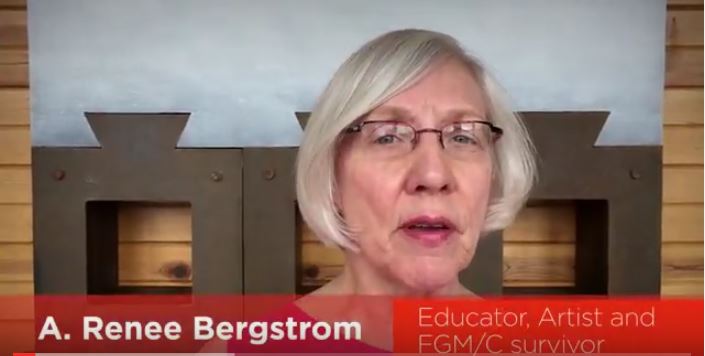
Four American survivors of Female Genital Cutting have broken the culture of silence around the issue through a new video. These women, from diverse backgrounds, illustrate that FGC is not restricted to any one geography, religion, or socioeconomic class. The four women featured in the video produced by the U.S. Department of State Bureau of International Information Programs include Renee Bergstrom, F.A. Cole, Aissata Camara, and Sahiyo co-founder Mariya Taher. In order to realize the UN Sustainable Development Goal of ending FGC by 2030, we need not only more courageous survivors need to speak out, but we also need religious leaders, men and boys, health practitioners, and young people to join the global campaign. To watch the video, click here.
Speak Out on FGM petition to the UN collects more than 500 signatures
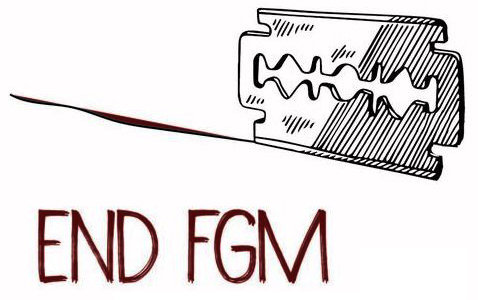
In December 2015, Speak Out on FGM – a collective of Bohra khatna survivors – launched a signature petition on Change.org, appealing to various ministers in the Indian government to end Female Genital Cutting (khatna) in India. It was the first time that 17 Bohra women had publicly come out, as signatories, to speak against the practice, and the petition helped break the silence on Khatna both in the community and the media. Today, the petition has amassed more than 83,000 supporters. A year since this pioneering petition, on December 10, 2016, Speak Out on FGM launched a new petition on Change.org, this time addressed to the United Nations. The petition was launched on Human Rights Day – the last day of the global 16 Days of Activism campaign to end gender-based violence, and it has already received 544 supporters. The new petition reflects the growing, open support for the cause of ending khatna: this time, 32 Bohra women listed their names as signatories to the petition. This petition is an appeal by survivors of khatna, calling upon the United Nations to strengthen its recognition of India as one of the countries where FGC is practiced. While UN agencies do acknowledge that FGC is prevalent in “certain ethnic groups in Asian countries…in India, Indonesia, Malaysia, Pakistan and Sri Lanka”, Indonesia is the only one of these countries that is included in the UN’s official FGC-prevalence statistic of 200 million girls cut in 30 countries. Girls cut in India are thus excluded from these statistics of global prevalence (learn more here). More global recognition of FGC would help spread awareness on the issue of khatna in India. More significantly, it would help Bohra women and men make official appeal to the Indian government to take policy-level steps to end FGC. Currently, there is no law against FGC in India, and the matter is still barely recognised as prevalent in the Indian Bohra community. Since the religious and administrative headquarters of the Bohras are located in Mumbai, and since India houses approximately half the international Bohra population of 1.5 to 2 million, ending khatna in India can go a long way in ending the practice among all Bohras. Through this petition, Speak Out on FGM hopes to speed up the process of instituting government and international mechanisms to highlight and promote measures to eradicate FGC. To sign the petition, click here.
Sahiyo participates in the End Violence Against Girls Summit on FGM/C
